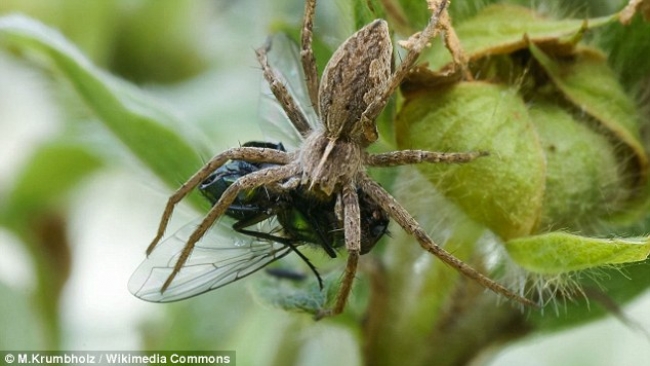How bee stings can be DEADLY - even if you've been stung before

Beekeeper David Parker had been stung more than a dozen times learning about his new hobby without any problems. Then one summer’s day while gardening, he was stung on the head and then on the chest — and passed out.
‘I’d started beekeeping the year before and usually I hardly felt anything if I was stung. 'I would just pull out the sting and carry on,’ says David, 51, a bank consultant, who lives in Surrey, with his wife Monique, 55, and daughter Alyssa, 14.
‘But this time was different — right away I felt dizzy and my shirt became drenched in sweat within about 20 seconds. I then had an urgent need to go to the toilet and started to itch intensely all over.’ He managed to pull out the sting, but minutes later he went to the bedroom to lie down — and passed out on the floor. ‘I’ve no idea how long I was unconscious as I was home alone,’ says David.
But feeling uneasy about what had happened, David decided to call one of his beekeeper friends, who advised him to see his GP as he feared the reaction could be more dangerous next time. ‘I saw the GP a few days later and he confirmed that I’d had an allergic reaction. He prescribed EpiPens of adrenaline and told me to keep them with me at all times. ‘He also said the next reaction could be far worse.
‘I didn’t want to give up beekeeping and managed to convince myself my reaction was just a one-off. ‘My wife wasn’t happy, though, as the hives in the garden contained about 60,000 to 70,000 bees.’
Monique was right to be concerned — two weeks later, David was stung again while gardening. ‘I felt sweaty and dizzy within seconds and staggered back into the house. Monique just managed to inject the EpiPen into my leg before I passed out and Alyssa called 999,’ says David.
By the time the ambulance arrived ten minutes later, David was coming round. He didn’t need to go to hospital, but, unsurprisingly, Monique was adamant the bees had to go. David had suffered an anaphylactic reaction — a potentially life-threatening response where the body’s immune system goes into overdrive after it mistakes an allergen for a foreign invader.
Mast cells (a type of white blood cell) explode and flood the body with chemicals including histamine and tryptase. This causes skin rashes and itching, swollen airways and breathing difficulties, violent stomach upsets and a fall in blood pressure, which leads to dizziness and a loss of consciousness.
Worryingly, it’s something that could happen to any of us, with a growing number of people such as David experiencing this kind of serious reaction without having had any previous allergic reaction to being stung or to other allergens, such as peanuts. The latest NHS figures show there were 22,377 admissions for allergies in England last year, 12,819 of them as emergencies. And there were 4,000 admissions for anaphylaxis — up by 9.14 per cent from 2010/11.
Bee and wasp stings are responsible for 70 per cent of the deaths from anaphylaxis in England and Wales — yet there is far greater awareness of other potential triggers, such as peanuts. ‘People just don’t realise how dangerous bee and wasp venom stings can be,’ says Dr Patrick Yong, a consultant immunologist at the Royal Surrey County Hospital in Guildford.
The most worrying trend is that increasing numbers of people suffer anaphylactic reactions for the first time as adults. ‘These are people who never reacted to these triggers before — even mildly — and suddenly develop a severe allergic reaction,’ says Dr Yong.
Source: Daily Mail
Tue 7 Jun 2016 at 07:15





